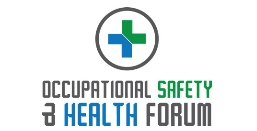By Lou Campbell, Programmes Director of Wellbeing Partners
The conversation around neurodivergence in the workplace continues to gather pace, with encouraging moves towards awareness, inclusion and support for neurodivergent employees. But a fundamentally important topic of discussion – the intersectionality of neurodivergence and mental health issues – is frequently underestimated and misunderstood.
Whilst neurodiversities such as autism and ADHD are not mental health issues, they are significant risk factors for mental health issues, particularly anxiety disorders and depressive disorder.
Anxiety disorders including obsessive compulsive disorder (OCD), phobias disorder, generalised anxiety disorder, social anxiety disorder, and clinical depression are far more prominent amongst people with autism and ADHD, yet research shows that many of these conditions go unrecognised and unsupported. The statistics make for stark reading:
· 50% of adults with ADHD will experience a co-occurring anxiety disorder[i]
· 47% of adults with autism fall into the ‘severe anxiety’ category[ii]
· 70% of adults with ADHD will have a co-diagnosis of depression[iii]
· Between 45% and 67% of adults with ADHD experience insomnia[iv]
Whilst it is laudable that employers are embracing and celebrating neurodivergent employees and potential recruits, it is counterproductive to leave those employees without the necessary specialist mental health support they need to survive and thrive in the workplace.
, leads a specialist mental health team for supporting neurodivergent employees at workplaces around the UK and suggests four vital support pillars that employers must have in place for neurodivergent staff to have access to:
1. Specialist Neurodivergent Counselling Support: Key to supporting your neurodivergent staff is ensuring that they have straightforward access to specialist neurodiversity counsellors who are experienced in supporting neurodivergent employees’ mental health. Be aware that most EAPs and private medical insurance companies do not specialise in neurodiversity
2. Mental Health Wellbeing Workshops for Neurodivergent Employees: Whilst neurotypical employees have largely benefited from a plethora of workplace wellbeing initiatives and workshops over the past few years, it is essential that employees with ADHD and/or autism are sufficiently catered for in this space. With content, presentation and communication specifically designed to support neurodivergent employees navigate the types of mental health issues that commonly occur in a workplace setting, rather than “off the shelf” sessions which tend to be more generalist in content
3. Specialist Mental Health Training for Managers of Neurodivergent Employees: Supporting employee mental health is a daunting responsibility for many managers. This is even more prominent when it comes to supporting neurodivergent employees. Engaging in specialist line manager training helps support managers and leaders whilst also in turn ensuring that neurodivergent employees’ mental health needs are supported effectively and appropriately
4. Specialist Admin Support for employees with ADHD and Autism: increasing the awareness and understanding of neurodivergence in the workplace is commendable, but expecting neurodivergent employees to thrive in working environments that fail them, is not. Providing specialist support staff to create the conditions that enable neurodivergent employees to thrive is vital. This includes specialist admin support, coaching and training for neurodivergent employees
As organisations increase their awareness and celebration of neurodiversity in the workplace, more attention needs to be paid to the specific mental health needs of employees and recruits with ADHD and autism. The prioritisation of specialist support services that enable your neurodivergent employees to thrive is a responsibility that HR teams and managers need to consider and embrace, in order to be truly progressive employers.”
[i] https://bpded.biomedcentral.com/articles/10.1186/s40479-019-0115-2 and https://adaa.org/understanding-anxiety/related-illnesses/other-related-conditions/adult-adhd
[iii] https://www.additudemag.com/adult-adhd-depression-anxiety-study/
[iv] https://pubmed.ncbi.nlm.nih.gov/28547881/#:~:text=Results%3A%20Insomnia%20was%20far%20more,)%20(P%20%3D%200.003). And https://www.ncbi.nlm.nih.gov/pmc/articles/PMC8187558/
Photo by Proxyclick Visitor Management System on Unsplash







